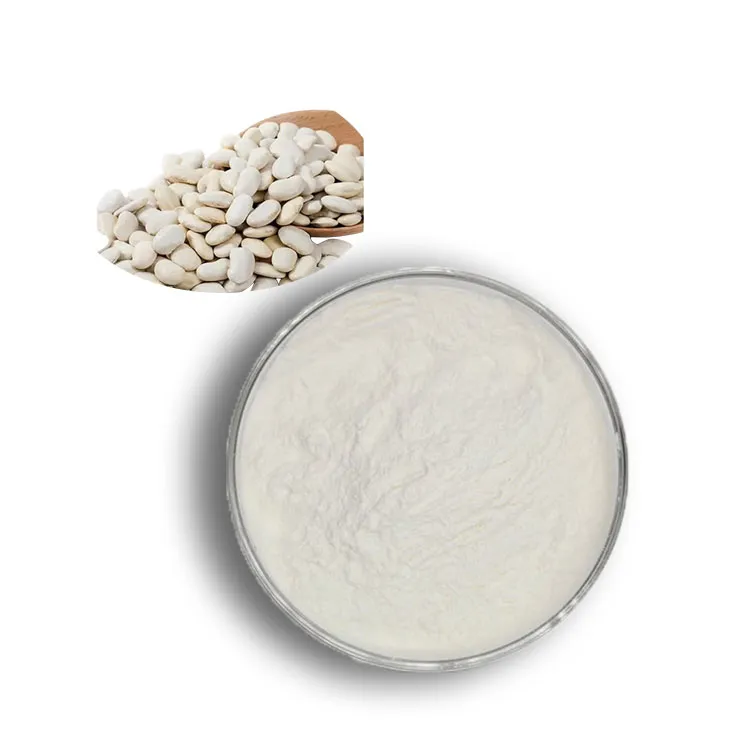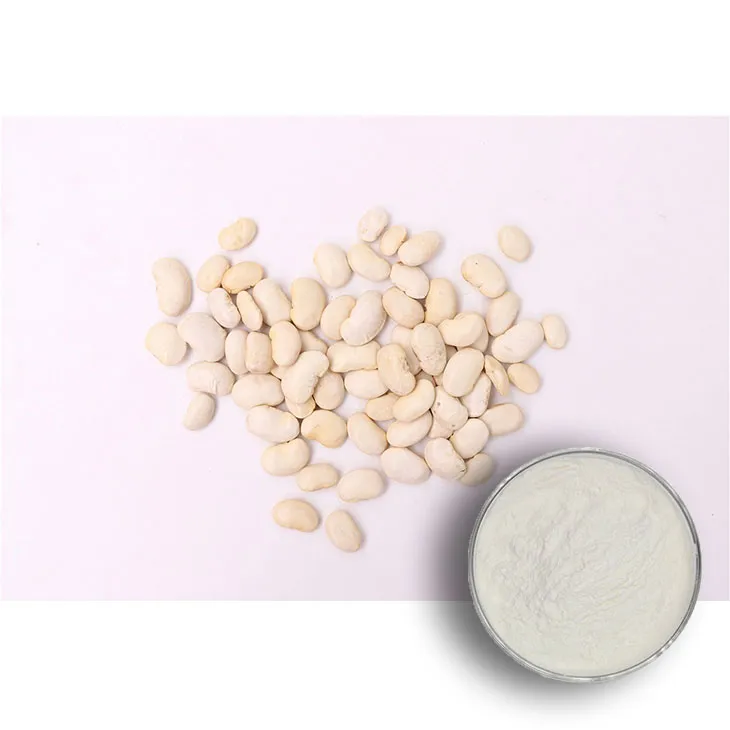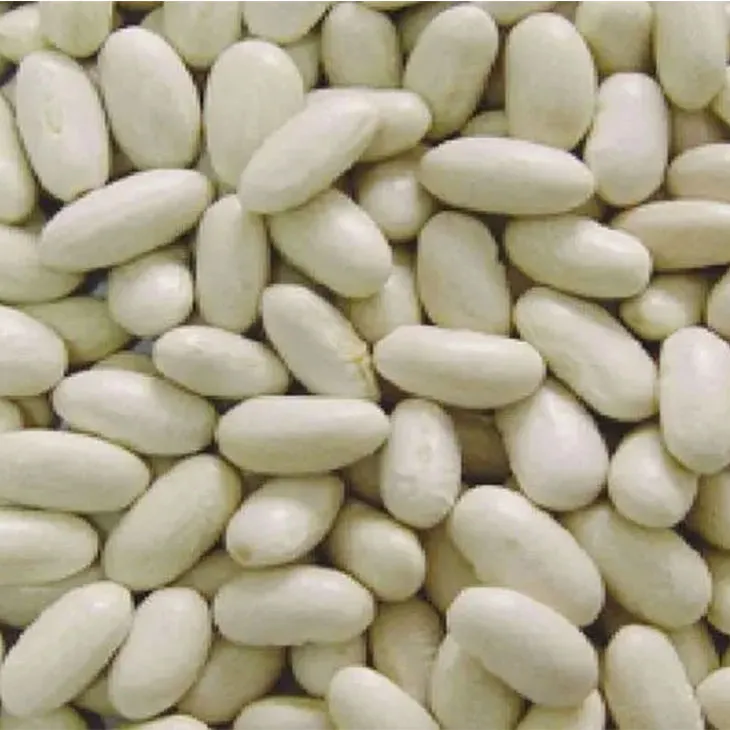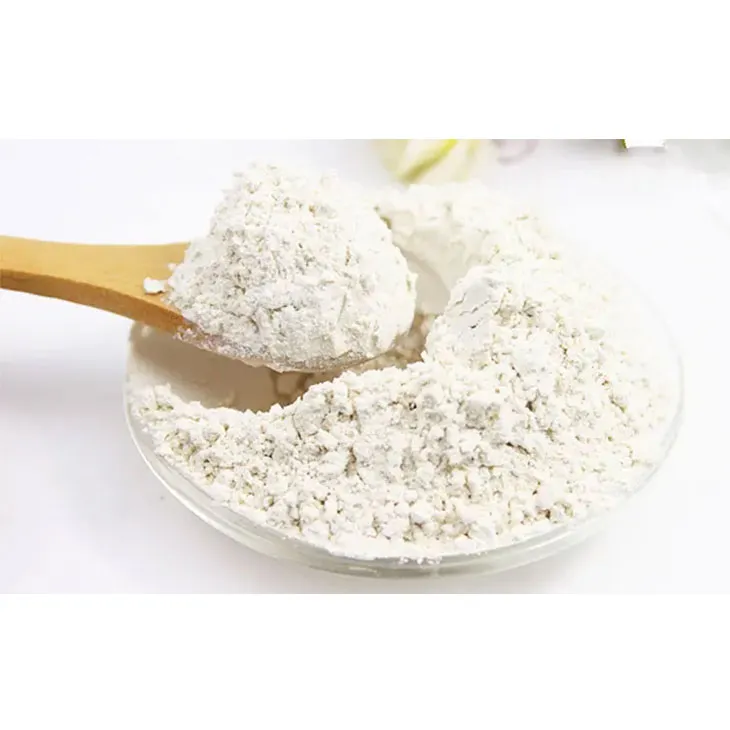- 0086-571-85302990
- sales@greenskybio.com
Use kidney bean extracts to prevent diseases and enhance immunity.
2024-11-12

1. Introduction
In the pursuit of good health, natural remedies have been gaining significant attention. One such natural product that has shown great promise is the Kidney Bean Extract. Kidney beans, a common ingredient in many diets around the world, are not only a source of nutrition but also possess bioactive compounds that can play a crucial role in preventing diseases and enhancing immunity.

2. Kidney Beans: A Nutritional Overview
Kidney beans are rich in a variety of nutrients. They are an excellent source of protein, which is essential for building and repairing tissues in the body. Additionally, they contain fiber, which aids in digestion and helps maintain a healthy gut. They also provide vitamins such as vitamin K, which is important for blood clotting, and minerals like magnesium, which is involved in numerous enzymatic reactions in the body.
However, it is the bioactive compounds in kidney beans that are of particular interest when it comes to their role in enhancing immunity and preventing diseases.

3. Bioactive Compounds in Kidney Bean Extract
3.1. Lectins
Lectins are a type of protein found in kidney beans. These proteins have the ability to bind to specific carbohydrates on the surface of cells. Their function in the context of immunity is quite interesting. Lectins can recognize and bind to foreign pathogens, such as bacteria or viruses, and mark them for destruction by the immune system. For example, they can attach to the outer surface of a bacterium and signal the immune cells, like macrophages, to engulf and destroy the pathogen.
3.2. Antioxidants
Kidney Bean Extract contains various antioxidants. These include phenolic compounds such as flavonoids. Antioxidants play a vital role in protecting the body from oxidative stress. Oxidative stress occurs when there is an imbalance between the production of reactive oxygen species (ROS) and the body's ability to detoxify them. ROS can damage cells and DNA, which can lead to various diseases, including cancer and heart disease. Antioxidants in kidney bean extract can neutralize ROS, preventing this damage and thereby contributing to disease prevention.
For instance, flavonoids in kidney bean extract can scavenge free radicals, which are highly reactive molecules that are part of ROS. By doing so, they reduce the oxidative burden on cells and help maintain their normal function.
3.3. Phytoestrogens
Phytoestrogens are another group of bioactive compounds present in kidney bean extract. These compounds have a structure similar to that of estrogen, a hormone in the human body. While their exact role in immunity is still being explored, they are thought to have anti - inflammatory properties. Inflammation is a key component in many diseases, and by reducing inflammation, phytoestrogens may contribute to overall health and disease prevention.
Some studies suggest that phytoestrogens can modulate the immune response by interacting with immune cells. For example, they may affect the function of lymphocytes, which are important in adaptive immunity.

4. Kidney Bean Extract and Disease Prevention
4.1. Cancer Prevention
The antioxidants in kidney bean extract play a significant role in cancer prevention. As mentioned earlier, they can neutralize free radicals that can cause DNA damage. DNA damage is a precursor to cancer development. By preventing this damage, the risk of cancer can be reduced. Additionally, some studies have suggested that lectins may also have anti - cancer properties. They may be able to interfere with the growth and spread of cancer cells by binding to specific receptors on their surface.
For example, in vitro studies have shown that certain components of kidney bean extract can inhibit the proliferation of cancer cells. However, more research is needed to fully understand the mechanisms and to determine the effectiveness in vivo.
4.2. Heart Disease Prevention
Kidney bean extract can contribute to heart disease prevention in several ways. The fiber content in kidney beans helps to lower cholesterol levels. High cholesterol is a major risk factor for heart disease. By binding to cholesterol in the digestive tract, fiber can prevent its absorption into the bloodstream. Additionally, the antioxidants in the extract can protect the heart from oxidative damage. Oxidative damage to the blood vessels and heart muscle can lead to the development of heart disease.
Furthermore, some studies have indicated that the bioactive compounds in kidney bean extract may have a positive effect on blood pressure regulation. High blood pressure is another significant risk factor for heart disease.
4.3. Diabetes Prevention
The fiber in kidney bean extract can also play a role in diabetes prevention. It helps to regulate blood sugar levels by slowing down the absorption of glucose from the digestive tract. This can prevent sudden spikes in blood sugar, which is important for individuals at risk of developing diabetes. Additionally, some of the bioactive compounds in the extract may improve insulin sensitivity. Insulin is a hormone that regulates blood sugar, and improved insulin sensitivity means that the body can better respond to insulin, reducing the risk of developing diabetes.

5. Kidney Bean Extract and Immune Enhancement
The bioactive compounds in kidney bean extract work together to enhance the immune system. Lectins help in identifying and eliminating foreign pathogens, as already discussed. The antioxidants protect immune cells from oxidative damage, ensuring that they can function properly. Immune cells, like all cells in the body, are vulnerable to oxidative stress, and by neutralizing ROS, antioxidants in kidney bean extract help maintain the integrity and function of these cells.
Phytoestrogens, with their anti - inflammatory properties, can also contribute to immune enhancement. Inflammation can suppress the immune system, and by reducing inflammation, phytoestrogens allow the immune system to function more effectively. Additionally, a healthy gut, which is promoted by the fiber in kidney beans, is essential for a strong immune system. The gut is home to a large number of immune cells, and a balanced gut microbiota, which is supported by proper digestion facilitated by fiber, is crucial for immune function.
6. How to Incorporate Kidney Bean Extract into Your Diet
There are several ways to incorporate kidney bean extract into your diet. One option is to consume kidney beans in their whole form. They can be cooked in a variety of ways, such as in soups, stews, or salads. However, if you prefer a more concentrated form of the extract, there are also dietary supplements available.
When choosing a dietary supplement, it is important to ensure that it is from a reliable source. Look for products that are standardized and have been tested for purity and potency.
- You can also make your own kidney bean extract at home. Boil kidney beans in water, strain the liquid, and use it in cooking or as a beverage. However, be aware that raw kidney beans contain toxins that need to be removed by proper cooking.
7. Precautions and Considerations
While kidney bean extract has many potential health benefits, there are also some precautions to consider. As mentioned, raw kidney beans contain toxins, such as lectins in their raw form, which can cause digestive problems, including nausea, vomiting, and diarrhea. Therefore, it is essential to ensure that kidney beans are thoroughly cooked before consumption.
If you are taking kidney bean extract as a supplement, it is advisable to consult with a healthcare provider, especially if you have any pre - existing medical conditions or are taking medications. Some bioactive compounds in the extract may interact with medications or affect certain medical conditions.
8. Conclusion
In conclusion, kidney bean extract shows great potential in preventing diseases and enhancing immunity. Its bioactive compounds, including lectins, antioxidants, and phytoestrogens, contribute to these effects through various mechanisms. Incorporating kidney bean extract into your diet, either through consuming kidney beans or taking supplements, can be a beneficial step towards maintaining good health. However, it is important to be aware of the precautions and to ensure that proper cooking and quality control are maintained. With further research, the full potential of kidney bean extract in promoting health may be even more fully realized.
FAQ:
What are the main bioactive compounds in kidney bean extract?
Kidney bean extract contains various bioactive compounds. One of the main ones is lectin. Lectin has been shown to have certain biological activities related to the immune system. Additionally, it may also contain phenolic compounds which are known for their antioxidant properties. These compounds work together to contribute to the potential health benefits of kidney bean extract.
How does kidney bean extract enhance immunity?
The bioactive compounds in kidney bean extract can interact with the immune system in multiple ways. For example, lectin may help in stimulating the production of immune cells. The antioxidant phenolic compounds can reduce oxidative stress in the body. Oxidative stress can suppress the immune system, so by reducing it, the immune function can be enhanced. Also, some components in the extract might modulate the immune response, making it more effective against pathogens.
Can kidney bean extract prevent specific diseases?
There is evidence suggesting that kidney bean extract may play a role in preventing certain diseases. For instance, its antioxidant properties may help prevent chronic diseases such as heart disease by reducing oxidative damage to cells. It may also have anti - inflammatory effects which could be beneficial in preventing diseases associated with chronic inflammation, like some autoimmune diseases. However, more research is still needed to fully understand its preventive effects on specific diseases.
Is it safe to use kidney bean extract for enhancing immunity?
When used in appropriate amounts, kidney bean extract is generally considered safe for most people. However, some individuals may be allergic to kidney beans, in which case they should avoid using the extract. Also, excessive consumption may lead to some adverse effects, although this is rare. It is always advisable to consult a healthcare professional before starting to use kidney bean extract for immunity enhancement.
How should kidney bean extract be consumed for maximum health benefits?
The consumption method of kidney bean extract for maximum health benefits can vary. It can be consumed in the form of supplements, but it is important to follow the recommended dosage on the product label. Some people may also choose to consume kidney beans in their diet as a natural source of the extract. However, when consuming kidney beans, they need to be cooked thoroughly to avoid potential toxicity from certain compounds in raw kidney beans.
Related literature
- The Bioactive Compounds in Kidney Beans and Their Health Implications"
- "Kidney Bean Extract: A Promising Agent for Immune Modulation"
- "Preventive Effects of Kidney Bean - Derived Compounds on Chronic Diseases"
- ▶ Hesperidin
- ▶ citrus bioflavonoids
- ▶ plant extract
- ▶ lycopene
- ▶ Diosmin
- ▶ Grape seed extract
- ▶ Sea buckthorn Juice Powder
- ▶ Beetroot powder
- ▶ Hops Extract
- ▶ Artichoke Extract
- ▶ Reishi mushroom extract
- ▶ Astaxanthin
- ▶ Green Tea Extract
- ▶ Curcumin Extract
- ▶ Horse Chestnut Extract
- ▶ Other Problems
- ▶ Boswellia Serrata Extract
- ▶ Resveratrol Extract
- ▶ Marigold Extract
- ▶ Grape Leaf Extract
- ▶ blog3
- ▶ blog4
- ▶ blog5
-
Organic Tongkat Ali extract powder factory.
2024-11-12
-
How to make powder with ashwagandha extract.
2024-11-12
-
Rosehip extract manufacturers from China.
2024-11-12
-
The best cat's claw extract in nature.
2024-11-12
-
Chinese Dandelion Leaf Extract Suppliers.
2024-11-12
-
Red Wine Extract
2024-11-12
-
Maca Extract
2024-11-12
-
Quercetin
2024-11-12
-
Resveratrol extract
2024-11-12
-
Yohimbine Bark Extract
2024-11-12
-
Marigold Extract
2024-11-12
-
Chia Seed Powder
2024-11-12
-
Apricot Powder
2024-11-12
-
Bitter Melon Extract
2024-11-12
-
Lemon Balm Extract
2024-11-12





















